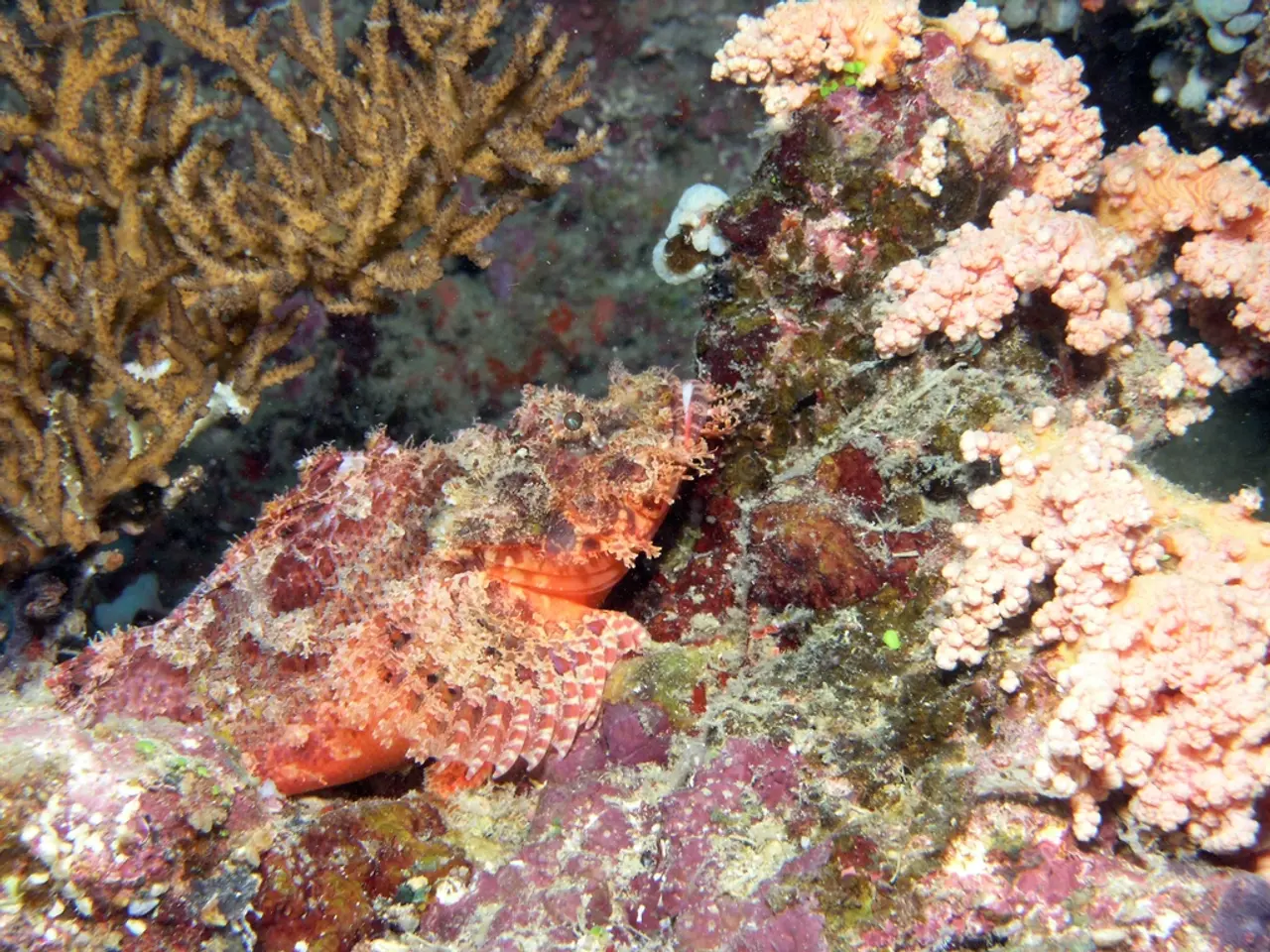Advantages of Incorporating Seaweed in Cattle Feeds
In the world of agriculture, a humble marine plant is making waves. Seaweed, a diverse group of marine plants that grow in both oceans and freshwater, is increasingly being recognised for its potential in sustainable livestock farming.
Seaweed comes in various types such as red, brown, and green, and offers a sustainable source of nutrition. Integrating seaweed into feeding practices can lead to several advantages, including improved feed efficiency, better overall health, and enhanced gut health for livestock.
One of the most significant benefits of seaweed is its potential to reduce methane emissions, a significant contributor to greenhouse gases. This aligns with modern practices in sustainable agriculture and the global efforts towards reducing the carbon footprint.
Research indicates that incorporating seaweed into livestock feed can lead to significant improvements in growth rates and feed efficiency. The omega-3 fatty acids found in certain seaweeds are known for their anti-inflammatory properties and contribute to better gut health.
Sustainable sourcing of seaweed is crucial, helping prevent over-exploitation and contributing to overall ocean health. In Germany, the seaweed species most commonly used for feeding cattle and sheep are primarily microscopic algae like Spirulina due to its high content of fatty acids, amino acids, and vitamins. Macroalgae such as species providing alginates, agar, and carrageenan extracts are also used to enhance nutritional value.
The addition of seaweed to livestock diets can take several forms, including mixing it directly into traditional feed or using it as a nutritional supplement. Utilising natural additives like seaweed adds significant value to livestock diets, enhancing animal growth and reproduction rates.
Further research is needed to maximise the benefits of seaweed, including exploring the best types of seaweed for different livestock and ways to easily integrate them into diets. As the world continues to grapple with climate change and the need for sustainable practices, the use of seaweed in livestock farming is gaining attention for its numerous benefits in sustainable agriculture.
Incorporating marine resources like seaweed into agriculture can help reduce waste and promote biodiversity. Adopting the use of seaweed in livestock diets could lower greenhouse gas emissions from cattle, supporting global efforts towards reducing the carbon footprint. With its remarkable nutritional profile, offering a range of vitamins and minerals essential for livestock health, seaweed is poised to play a significant role in the future of sustainable agriculture.
Read also:
- Abu Dhabi initiative for comprehensive genetic screening, aiming to diagnose over 800 conditions and enhance the health of future generations in the UAE.
- Elderly shingles: Recognizing symptoms, potential problems, and available treatments
- Protecting Your Auditory Health: 6 Strategies to Minimize Noise Damage
- Exploring the Reasons, Purposes, and Enigmas of Hiccups: Delving into Their Origins, Roles, and Unsolved Aspects





